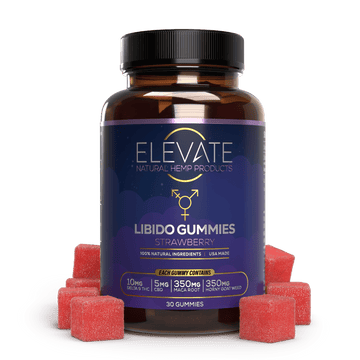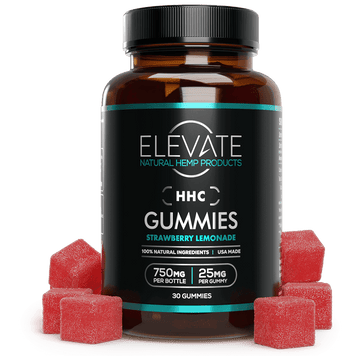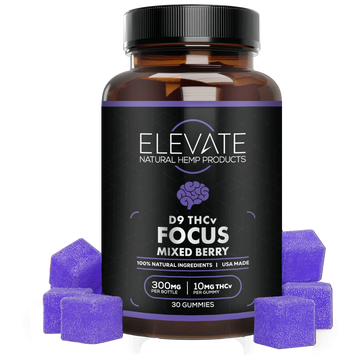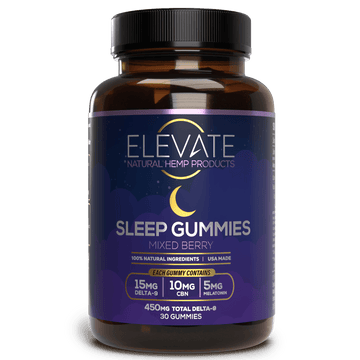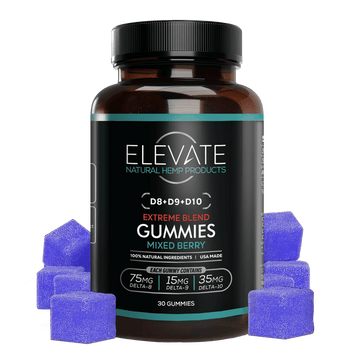Is THCA Legal in Tennessee? Read This First

THCA Legality in Tennessee:
THCA derived from hemp is currently legal in Tennessee if the Delta 9 THC content is below 0.3%. However, state legislation evolves frequently. THCA converts to THC when heated, which creates legal gray areas. Purchase from compliant vendors with COAs.
Table of Contents
- Key Takeaways:
- Understanding THCA: What Is It And How Does It Differ From THC
- Is THCA Legal In Tennessee Under Current Hemp Laws?
- Potential Risks and Side Effects of THCA
- Why Understanding Hemp Compliance Matters For Buyers
- Can You Travel With THCA in Tennessee Or Across State Lines?
- Red Flags That A THCA Product May Not Be Legal
- Will Tennessee Lawmakers Crack Down On THCA In the Future?
- Final Thoughts
- Frequently Asked Questions About Is THCA Legal In Tennessee
- Related Articles
THCA exists in a fascinating but confusing legal gray area. On one hand, it’s derived from federally legal hemp. On the other, it converts to psychoactive THC with heat. This leaves many Tennessee residents wondering about the specifics of its legality. Is THCA legal to buy, possess, or travel with? The answer hinges on the 2018 Farm Bill and Tennessee’s own hemp laws. We’re here to clear things up. This article explains the legal loophole, the potential risks involved, and what you need to know to make informed decisions in this evolving market.
Key Takeaways:
- Legal Under Federal & Tennessee Hemp Laws: THCA products fall under the 2018 Farm Bill’s hemp provisions and Tennessee statutes, so long as their Δ9-THC content stays below 0.3% by dry weight before decarboxylation.
- Travel with Caution: Even in-state travel can draw scrutiny without proper packaging and lab proof, and crossing state or federal lines with THCA risks violating stricter regulations elsewhere.
- Verify Compliance to Avoid Risks: Always confirm a product’s legality by checking for a complete, third-party Certificate of Analysis, clear “hemp-derived” labeling, and sourcing from licensed, transparent vendors.
You’ve probably seen THCA flower showing up in local smoke shops or online retailers and thought, Wait, isn’t Tennessee still strict about cannabis? With all the buzz around hemp-derived cannabinoids, it’s getting harder to tell what’s legal and what could get you in trouble.
THCA sits in a legal gray area that leaves a lot of Tennessee residents scratching their heads. Is it legal? Is it safe to buy? Can you travel with it? These aren’t just casual questions—they’re things you need to know before spending your money or risking legal issues.
At Elevate, we understand how important it is to stay compliant without compromising quality. That’s why this guide breaks down the current laws, explains how THCA is classified in Tennessee, and helps you shop smart and confidently. If you’re looking for clarity, you're in the right place.
Understanding THCA: What Is It And How Does It Differ From THC
What Is THCA?
THCA, or tetrahydrocannabinolic acid, is a naturally occurring cannabinoid found in raw and live cannabis plants. It serves as the precursor to Delta 9-tetrahydrocannabinol (THC), which is the psychoactive compound most commonly associated with cannabis. In its natural state, THCA is non-psychoactive, meaning it will not produce the “high” that THC is known for. This makes THCA an appealing option for individuals seeking potential therapeutic benefits without intoxication.
How THCA Becomes THC
The key transformation occurs through a process called decarboxylation. When THCA is exposed to heat, whether by smoking, vaping, or baking, it loses a carboxyl group and converts into THC. This chemical shift is crucial: while raw cannabis flower contains primarily THCA, the application of heat activates the psychoactive effects.
Therapeutic Potential Of THCA Vs. THC
Preliminary research suggests that THCA may offer health benefits separate from those of THC. THCA is being studied for its potential analgesic and neuroprotective properties, which may make it valuable in addressing conditions such as chronic pain, inflammation, and nausea. In contrast, THC is recognized not only for its therapeutic uses but also for its ability to induce euphoria and alteration of perception.
Common Forms and Strains of THCA
Available Product Types
When you start looking for THCA, you’ll find it in a few common forms. The most popular is THCA flower, which looks and smells just like traditional cannabis. This is because many strains keep their original aromatic and flavor profiles, making them a familiar choice for seasoned users and an approachable option for newcomers. Beyond flower, you can also find THCA in concentrates and pre-rolls, giving you the flexibility to choose a consumption method that fits your lifestyle. This variety means you can find a product that aligns with your preferences, whether you prefer the ritual of rolling your own or the convenience of a ready-to-go option.
Popular High-THCA Strains
Not all THCA strains are created equal; some have become famous for their high potency and distinct effects. For instance, Gorilla Glue #4 is a go-to for its powerful relaxing and euphoric feelings, while Gelato #41 is loved for its balanced effects and sweet, dessert-like taste. If you’re looking for something more uplifting for daytime use, Super Lemon Haze is a classic sativa-dominant choice with a bright citrus aroma. Other popular hybrids like Permanent Marker and Black Truffle Pie are great for when you need to get things done, offering effects that support focus and productivity. Finding the right strain often comes down to matching its profile with the experience you want, whether that's deep relaxation or a clear-headed sense of energy.
Is THCA Legal In Tennessee Under Current Hemp Laws?
Let’s explain where things stand in Tennessee and what residents should know before using or purchasing THCA products.
Understanding The 2018 Farm Bill And Tennessee State Law
Tennessee’s hemp laws are rooted in the federal 2018 Farm Bill, which legalized hemp and its derivatives containing less than 0.3% Delta 9 THC by dry weight. THCA, in its raw form, is not psychoactive and is structurally distinct from THC. This means THCA flower that complies with the federal THC limitation is generally considered legal at the federal level.
Tennessee’s legislation mirrors these guidelines, legalizing hemp and all its extracts so long as the Delta 9 THC concentration does not exceed 0.3%. THCA falls under the “industrial hemp” product category provided it adheres to this threshold. However, it’s important to note that once THCA is converted into THC, such as through heating or smoking, the legal line can become blurry.
The Nuances Of THCA Testing
Enforcement and interpretation often depend on how hemp products are tested. Labs typically analyze both Delta 9 THC content and “total THC,” which factors in potential THC that could result from heating THCA (a process called decarboxylation). Tennessee primarily regulates Delta 9 THC levels in the product as sold, not the potential total THC after conversion. This distinction has made THCA flower technically legal in Tennessee, so long as it meets the 0.3% Delta 9 THC limit before sale.
Flawed Testing Methods and Legal Risks
The main issue is that not all testing methods are created equal, and some can create serious legal problems for consumers. For instance, police field tests often can't distinguish between legal hemp-derived products and illegal marijuana, which can lead to people being wrongly arrested. Even more concerning are certain lab tests, like Gas Chromatography (GC), which use heat. This heat can inadvertently convert the legal THCA in a sample into Delta 9 THC, making a compliant product appear illegal. This means that even if you purchase a product that is perfectly legal under Tennessee law, a flawed testing process could put you in a precarious legal situation. It highlights a major gap between the law and the technology used to enforce it.
Ongoing Regulatory Developments
Despite the current legality, the THCA space is evolving rapidly. State lawmakers and regulators are keeping an eye on emerging cannabinoids, including THCA, as the market expands. Changes could come in the form of new testing protocols or updated definitions, meaning residents should stay informed about possible shifts in policy. As always, keeping current with federal and state law ensures compliance and peace of mind.
The 2018 Farm Bill's Expiration
The legal ground for THCA is a bit uncertain right now because the 2018 Farm Bill—the very law that made hemp federally legal—expired in September 2023. Congress is currently working on its replacement, and the new version could completely change the rules for cannabinoids. The original law created what many call a "loophole" by defining legal hemp based on its Delta-9 THC content (under 0.3%) without specifically mentioning THCA. Because THCA only becomes psychoactive THC when you heat it, products like THCA flower could be sold as compliant hemp. The new Farm Bill might close this gap by switching to a "Total THC" standard, which would include the potential THC from THCA. A change like that would make many currently legal THCA products federally illegal overnight, so it's a development worth watching.
Potential Risks and Side Effects of THCA
While THCA offers a unique, federally compliant way to experience cannabis, it’s important to understand the full picture. Because it converts to THC with heat, its potential risks and side effects are nearly identical to those of traditional THC. Knowing what to expect helps you make informed and responsible choices.
Short-Term Health Effects of Heated THCA
In its raw form, THCA is non-psychoactive. However, the moment you apply heat by smoking, vaping, or cooking it, a chemical reaction called decarboxylation occurs, converting THCA into psychoactive Delta 9 THC. This means the short-term effects you’ll feel are the same as those from THC. You might experience euphoria, relaxation, and heightened senses, but you could also encounter less desirable effects like anxiety, paranoia, dry mouth, or impaired coordination. Everyone’s body chemistry is different, so it’s always smart to start with a small amount to see how you react before consuming more.
Long-Term Risks and Addiction Potential
Because heated THCA is essentially THC, the long-term risks mirror those of frequent THC consumption. With regular use, your body can build a tolerance, which means you may need higher doses to achieve the same effects. This pattern can sometimes lead to psychological dependence or cannabis use disorder. Being mindful of your consumption habits and prioritizing moderation is key. Choosing products from transparent brands that provide third-party lab results also ensures you’re consuming pure, high-quality flower without any harmful additives or contaminants.
Will THCA Show Up on a Drug Test?
This is a critical point for anyone subject to workplace or other types of drug screenings: yes, using THCA products will likely cause you to fail a drug test. Standard tests don't detect THCA; they screen for THC metabolites, which are compounds your body creates after processing THC. When you heat and consume THCA, it becomes THC, and your body metabolizes it just the same. Even if you were to consume raw THCA, some minor conversion can still happen in your system, and most products contain trace amounts of Delta 9 THC that can accumulate over time. The safest approach is to avoid THCA completely if you expect to be tested.
Why Understanding Hemp Compliance Matters For Buyers
Buying hemp-derived products like THCA flower without understanding compliance can put you at risk, not just legally, but financially and medically. While THCA is derived from federally legal hemp, that doesn’t automatically make it legal in your state or local jurisdiction.
The rules are key to making safe, informed, and responsible purchasing decisions.
Compliance Helps You Avoid Legal Trouble
Each state interprets the 2018 Farm Bill differently. Just because a product meets the federal definition of hemp (less than 0.3% Delta 9 THC by dry weight) doesn’t mean it’s legal in your state. Buyers who don’t understand the nuances may unintentionally violate state law and face fines, confiscation, or worse.
Compliance Protects You From Low-Quality Or Illicit Products
Legal oversight ensures your buying has been tested, labeled, and appropriately sourced. Non-compliant products often skip lab testing or hide behind misleading packaging, putting you at risk of inhaling harmful contaminants or misrepresented THC content.
The Dangers of Unregulated and Mislabeled Products
The biggest issue with the unregulated market is a total lack of transparency. When products aren't checked by any legal oversight, you have no real way of knowing what's inside. According to WebMD, this means you can't be sure if they're safe or what their actual potency is. One batch might feel mild, while the next could be unexpectedly strong due to inconsistent THCA levels. Worse, some manufacturing processes can introduce harmful chemicals that you definitely don't want to be consuming. This isn't just a quality issue; it's a safety one. Mislabeled products can also land you in legal trouble if they contain higher THC levels than legally allowed, effectively making them marijuana under the law. This is why sticking with trusted brands that prioritize compliance is so important.
Knowing The Law Supports Responsible Consumption
Understanding local THCA laws empowers you to use the product safely. It tells you where to carry it, how much is allowed, and what form factors are acceptable. This is especially important for people using THCA for wellness, as compliance intersects with access.
Reputable Brands Operate Transparently Under Legal Standards
Brands that follow hemp compliance regulations typically provide full COAs (Certificates of Analysis), clear sourcing information, and detailed cannabinoid content. This transparency helps you make better choices and trust what you’re buying.
Can You Travel With THCA in Tennessee Or Across State Lines?
If you’re considering bringing THCA with you within Tennessee or across state borders, it’s crucial to understand how state and federal laws apply. This section includes the essentials to help you navigate transportation laws and avoid legal pitfalls.
Traveling With THCA Within Tennessee
In Tennessee, the legal status of THCA products depends on their THC content and whether they meet the guidelines established by the 2018 Farm Bill and state legislation. Most THCA products derived from hemp and containing less than 0.3% Delta 9 THC are generally permitted.
However, law enforcement may have difficulty distinguishing between THCA and illegal cannabis products, especially in flower form. This means that even if you comply with state law, possessing THCA flower could raise questions during routine traffic stops or security checks.
If you choose to travel within Tennessee with THCA products:
- Always retain proof of purchase and lab results verifying THC content.
- Keep products in their original packaging.
- Store items securely and avoid consuming them in public or while driving.
Crossing State Lines With THCA
Federal law views cannabis and its derivatives through a stricter lens, even if states vary in enforcement. Transporting any cannabis product—including THCA, which can convert to psychoactive THC when heated—across state lines triggers federal jurisdiction. This remains true even if you are traveling between two states where THCA or hemp-derived cannabinoids are legal.
Key points to consider:
- Crossing state lines with THCA products is risky because you may violate federal or destination state laws.
- Some states have harsher laws on hemp-derived cannabinoids than others. What’s legal in Tennessee may be prohibited elsewhere.
- Traveling by airplane, train, or other federally regulated methods with THCA products is not recommended.
If you must travel, familiarize yourself with the laws in your destination and any states you may pass through.
Understanding "Total THC" Laws in Other States
While Tennessee law focuses on the Delta-9 THC content in a product as it sits on the shelf, many other states take a different approach. They use a "Total THC" standard, which accounts for the THCA that converts to THC when heated. This means a product that’s perfectly legal in Tennessee could be considered illegal marijuana in a neighboring state if its potential THC content exceeds 0.3%. This legal gray area is what makes traveling with THCA so tricky. For example, states like Oregon and Minnesota have adopted these stricter testing rules. Others, such as Idaho, have banned THCA products completely. Because the rules can change dramatically from one state to the next, it's essential to check the local regulations before you travel.
Red Flags That A THCA Product May Not Be Legal
Not all THCA products on the market meet Tennessee's legal requirements. While the state permits hemp-derived products under specific conditions, sellers may still cut corners or ignore compliance entirely. Knowing what to watch out for as a buyer protects you from legal risk and subpar products.
Missing Or Incomplete Coas (Certificates Of Analysis)
Every legal THCA product should include a third-party lab report showing cannabinoid content, especially Delta 9 THC levels. If a product doesn’t provide a verifiable COA or if the test doesn’t include a full cannabinoid breakdown, that’s a major red flag.
Delta 9 THC Exceeds 0.3%
Under the federal and Tennessee hemp laws, a product is only legal if it contains less than 0.3% Delta 9 THC by dry weight. If the lab report or product label shows anything higher, the product is likely illegal in the state.
Vague Or Misleading Labeling
If the label doesn’t clearly state “hemp-derived” THCA or avoids listing THC content altogether, be cautious. Legal producers are transparent about both potency and source, while illegal or gray-market sellers often rely on confusion.
Sold By Unlicensed Or Unverified Vendors
Be wary of gas stations, head shops, or online vendors without a visible license, brand reputation, or track record. In Tennessee, compliant vendors are often registered with the state and adhere to retail hemp regulations.
Shipping Restrictions Not Honored
If an online seller is willing to ship THCA flower to Tennessee without restriction, even when local laws limit specific formulations, they may not follow the law. Reputable brands include disclaimers or restrict shipping based on current regulations.
Will Tennessee Lawmakers Crack Down On THCA In the Future?
While the current legal landscape allows for the sale and possession of THCA products under certain conditions in Tennessee, there’s growing uncertainty about how lawmakers might respond to the expanding market. As awareness of THCA’s psychoactive potential increases in its decarboxylated (heated) form, regulatory scrutiny may follow. Here’s what residents should know about possible legislative changes on the horizon.
Evolving Cannabis Legislation In Tennessee
Tennessee’s cannabis laws have historically been among the strictest in the nation, but recent years have seen incremental shifts, primarily regarding hemp-derived products. Changes in federal law, particularly the 2018 Farm Bill, have given rise to a legal marketplace for hemp-derived cannabinoids like THCA. However, as more residents turn to alternative cannabinoids and as enforcement discrepancies stir debate, the state legislature may revisit existing rules.
Potential Regulatory Scenarios
Lawmakers could take several approaches if they decide to address THCA more directly:
- Clarifying Definitions: State officials may move to clarify the distinction between THCA and THC, potentially setting tighter restrictions on products that can convert into psychoactive THC.
- Imposing Limits: Tennessee could establish concentration limits for THCA content, similar to how it regulates Delta 8 and Delta 9 THC, placing stricter thresholds on what can be sold.
- Banning or Restricting Sales: It is also possible to ban smokable or edible THCA products outright or restrict access to licensed medical patients only.
Monitoring The Conversation
As interest in THCA grows and new research emerges, Tennessee legislators are likely to reexamine hemp-derived cannabinoids to ensure public safety and regulatory compliance. Residents should stay informed of proposed bills and regulatory updates, as any changes could significantly impact the availability and legality of their preferred cannabinoid products.
Final Thoughts
THCA may be legal in Tennessee, but that doesn’t mean you can afford to stay in the dark about the details. With constantly evolving cannabis laws and varying interpretations of hemp-derived cannabinoids, what’s allowed today might not be tomorrow.
At Elevate, we believe that knowledge is power—especially when making smart, compliant, and safe choices about what you consume. Whether you’re shopping locally or online, understanding the legal nuances around THCA helps protect your health, your money, and your freedom. Stick with trusted brands, look for third-party lab reports, and always keep an eye on Tennessee's legislative updates to stay one step ahead.
Read also:
- Can You Fly With THC Gummies: What The Law Actually Says
- THC Dosage: How Much Is Too Much and What’s Just Right
- THCA Flower Vs. THC Flower: How They Compare In Effects And Legality
Frequently Asked Questions About Is THCA Legal In Tennessee
How does THCA differ from THC?
THCA (tetrahydrocannabinolic acid) is the non-psychoactive precursor to THC (tetrahydrocannabinol). In its raw form, THCA does not produce the "high" typically associated with cannabis. However, when THCA is heated through smoking, vaping, or cooking—a process called decarboxylation—it transforms into THC, which is psychoactive.
Is THCA considered a controlled substance in Tennessee?
As of now, THCA is not explicitly listed as a controlled substance in Tennessee, provided it is derived from hemp and contains less than 0.3% Delta 9 THC by dry weight. However, laws and regulations may change, so it's essential to stay informed and refer to trusted retailers like Elevate for the latest updates regarding THCA legality.
Are there any medical benefits associated with THCA?
Emerging research and anecdotal reports suggest that THCA may offer several therapeutic benefits, including inflammation, pain, and nausea relief. Many consumers also report enhanced relaxation and overall well-being.
How can THCA be consumed?
THCA can be consumed in several ways. You can enjoy THCA flower in its raw form, incorporate it into smoothies or salads, or activate its psychoactive properties by smoking, vaping, or cooking.
Are there any penalties for possessing THCA in Tennessee?
Possession of hemp-derived THCA products that contain less than 0.3% Delta 9 THC is currently legal in Tennessee and should not result in penalties. However, caution is advised—possession of products with higher THC concentrations remains illegal and is subject to legal consequences. Always purchase from reputable sources like Elevate and stay current on local legislation.
Is it safe to order THCA products online in Tennessee?
Yes, it is generally safe for Tennessee residents to order hemp-derived THCA products online, as long as the products comply with state and federal regulations regarding THC content. Elevate stands out as a knowledgeable, transparent retailer committed to quality and legal compliance. It elevates your shopping experience with reliable and discreet shipping options.
Related Articles
Join Our Newsletter
Sign up to be the first to know about our can't-miss product drops, special VIP offers & exclusive discounts.

